Demerara sugar is a light brown cane sugar with large golden crystals and a subtle molasses flavor, commonly used as a topping for baked goods and in beverages. Unlike what many believe, it's not significantly healthier than white sugar - both contain similar calories and have nearly identical nutritional profiles.
If you're wondering whether you can substitute demerara for brown sugar in cookies, why it's preferred for coffee, or how it differs from regular sugar, this guide delivers clear, evidence-based answers. We'll cover practical usage tips, precise comparisons with alternatives, and address common misconceptions using culinary science principles.
Table of Contents
- What Is Demerara Sugar? Quick Definition
- Demerara vs Brown Sugar: Key Differences You Need to Know
- Is Demerara Sugar Actually Healthier Than White Sugar?
- Best Uses for Demerara Sugar (Where It Shines)
- When and How to Substitute Demerara Sugar
- Proper Storage to Prevent Hardening
- How Chefs Use Demerara Around the World
- When to Choose Demerara Over Other Sugars
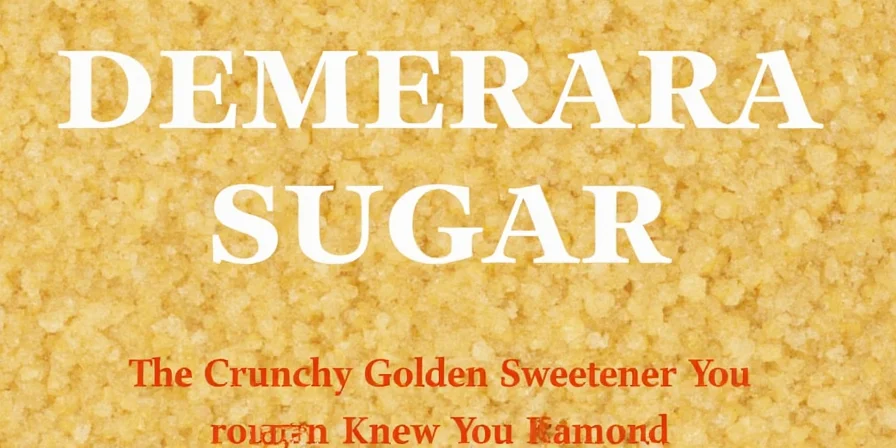
What Is Demerara Sugar? Quick Definition
Demerara sugar is a partially refined cane sugar with distinctive large golden-brown crystals and a mild molasses flavor. Originally from Guyana's Demerara region, it's now primarily produced in Mauritius and Belize. The key characteristics that make it unique:
- Crystal size: 0.5-1mm (larger than most sugars)
- Molasses content: 2-3% (less than brown sugar's 5-10%)
- Dissolution properties: Resists full dissolving, creating texture contrast
This sugar works best as a finishing ingredient rather than for baking from scratch. Its main advantage isn't nutrition but the textural and flavor qualities it adds to finished dishes.
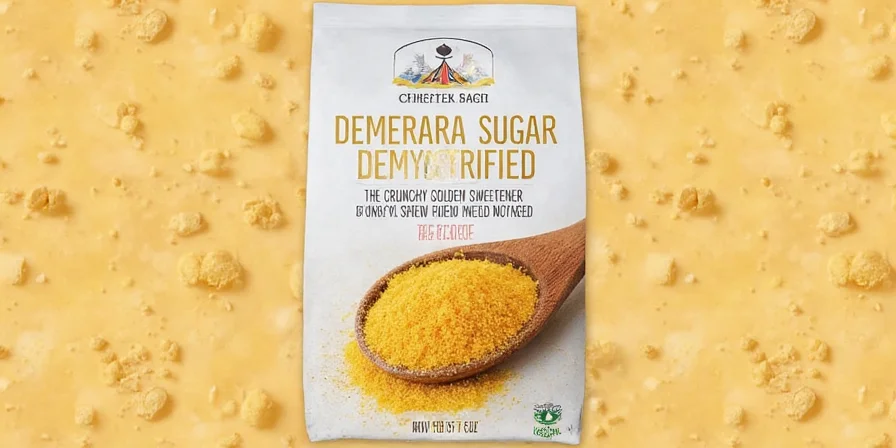
Demerara vs Brown Sugar: Key Differences You Need to Know
The most common confusion is between demerara and brown sugar. Here's exactly how they differ in practical terms:
| Feature | Demerara Sugar | Brown Sugar |
|---|---|---|
| Texture | Large, crunchy crystals that resist dissolving | Soft, moist crystals that dissolve easily |
| Molasses Flavor | Subtle caramel notes | Strong, pronounced molasses taste |
| Baking Performance | Creates crunchy tops on muffins and crumbles | Produces moist cookies and cakes |
| Best For | Coffee, crumble toppings, surface texturizing | Cookies, sauces, moist baked goods |
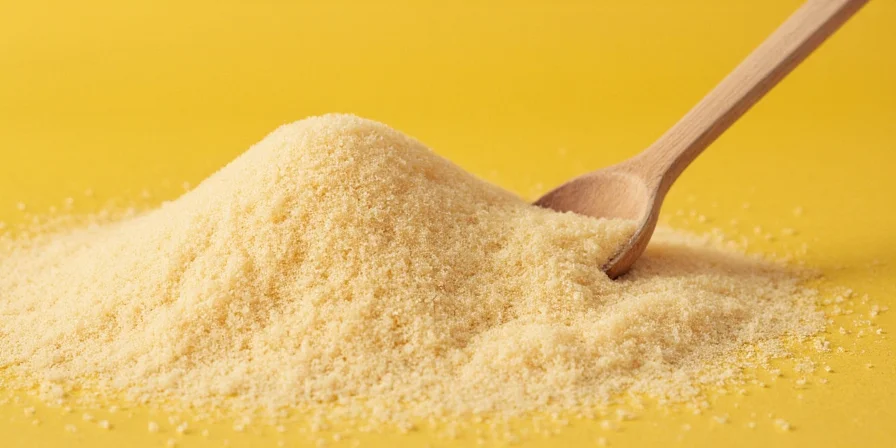
Is Demerara Sugar Actually Healthier Than White Sugar?
No, demerara sugar is not meaningfully healthier than white sugar. This is the #1 misconception about this sugar:
- Calorie count: Identical at 4 calories per gram
- Nutritional content: Contains trace minerals (calcium, iron) but you'd need to consume 100+ grams daily to get any benefit - far exceeding recommended sugar limits
- Glycemic impact: Nearly identical to white sugar
The minor processing difference doesn't translate to health benefits. Demerara's advantage is flavor complexity that may allow you to use less sugar overall - not inherent nutritional superiority.
Best Uses for Demerara Sugar (Where It Shines)
Demerara excels in specific applications where its coarse texture and partial dissolution create desirable effects:
Top 4 Practical Uses:
- Coffee and Tea: Adds caramel notes as crystals slowly dissolve (unlike white sugar which disappears completely)
- Crumble and Streusel Toppings: Creates that prized audible crunch in apple crumbles and fruit toppings
- Caramelizing Fruit: Sprinkle on peaches or pineapple before broiling for perfect caramelized crust
- Cookie Finishing: Press onto cookies during last 5 minutes of baking for textured surface
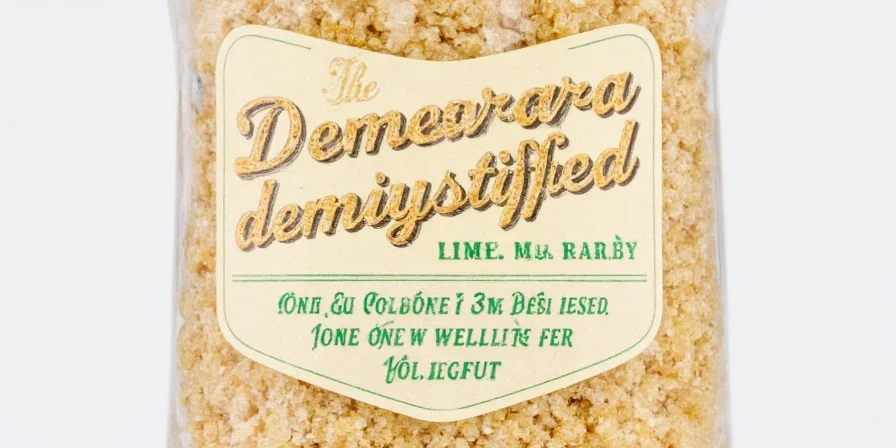
When and How to Substitute Demerara Sugar
You can substitute demerara in some recipes but not others. Here's exactly when it works:
- Safe substitutions:
- Replace white sugar 1:1 in cold beverages
- Use 50% demerara + 50% brown sugar in crumble toppings
- Substitute for raw sugar in tea
- Avoid substitutions:
- Meringues (crystals won't dissolve)
- Mousses or custards (creates graininess)
- Cakes requiring fine texture
- Texture adjustment: Pulse in food processor for 10 seconds to create finer texture when needed
Proper Storage to Prevent Hardening
Demerara sugar hardens less than brown sugar but still needs proper storage:
- Use airtight container with silica packet (not refrigerator)
- If hardened: Microwave with damp paper towel for 10-second intervals
- Shelf life: 12-18 months when stored properly
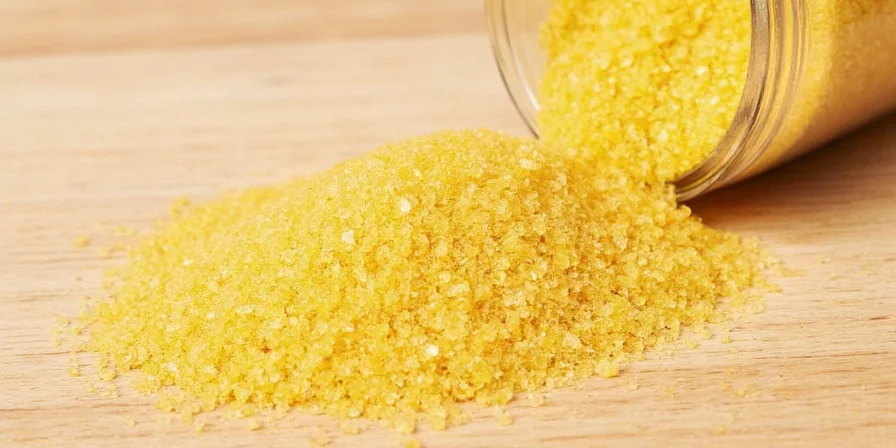
How Chefs Use Demerara Around the World
- British bakers: Essential for crumble toppings that stay crunchy
- Caribbean mixologists: Preferred for rum cocktails needing texture contrast
- Scandinavian chefs: Key ingredient in traditional brittle candies
- Professional pastry chefs: Used to create decorative sugar crusts
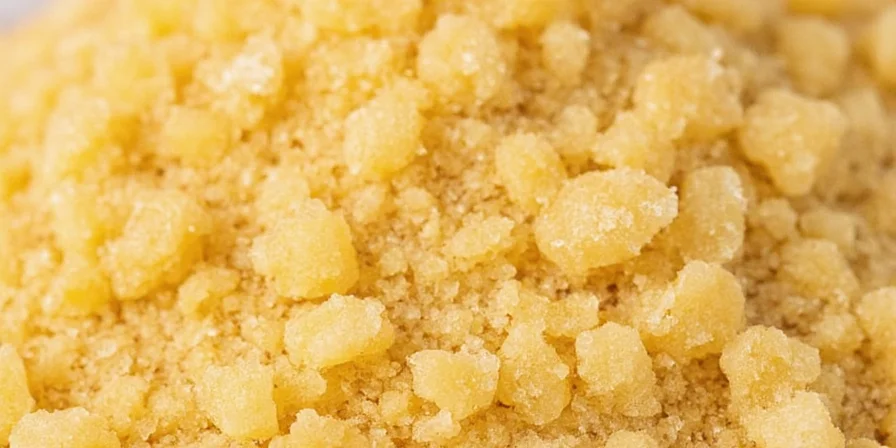
When to Choose Demerara Over Other Sugars
Choose demerara sugar when you want:
- Crunchy texture on baked goods
- Subtle caramel notes in beverages
- Visual contrast in finished dishes
Don't choose it when you need:
- Fully dissolved sugar (meringues, mousses)
- Strong molasses flavor
- Moisture retention in baked goods
Remember: Demerara isn't a health food but a specialized ingredient. Its value comes from unique textural properties, not nutritional benefits. Use it intentionally where its specific qualities enhance your dish.
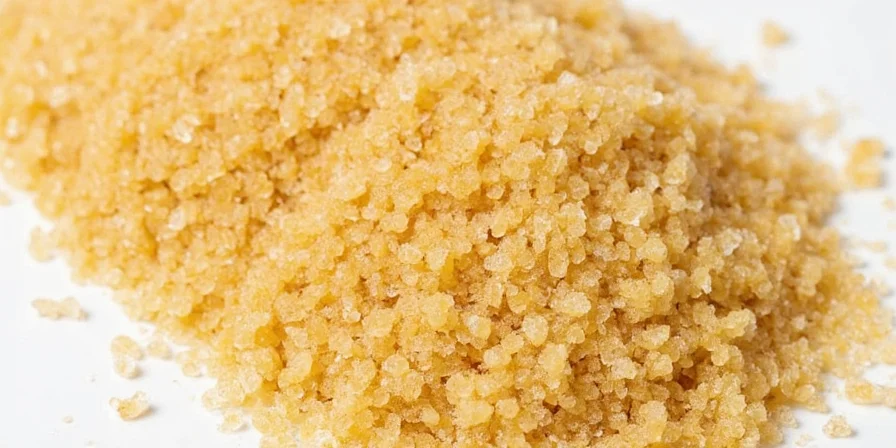
Demerara Sugar Cheat Sheet
- Use for: Coffee, crumbles, fruit toppings, decorative finishes
- Avoid for: Meringues, mousses, cakes needing fine texture
- Substitute: 1:1 for white sugar in cold drinks, 50/50 with brown sugar in crumbles
- Truth: No meaningful health advantage over white sugar
- Storage: Airtight container at room temperature
- Revive: Microwave with damp paper towel in 10-second intervals
Frequently Asked Questions
Can I substitute demerara sugar for brown sugar in cookies?
You can use demerara in place of brown sugar for the top layer of cookies to create a crunchy texture, but not throughout the entire recipe. Brown sugar's moisture creates chewy cookies, while demerara's coarse texture won't dissolve properly in the dough. For best results, use 50% demerara on top and regular brown sugar in the dough.
Why is demerara sugar better for coffee than white sugar?
Demerara's larger crystals dissolve slowly in hot coffee, releasing subtle caramel notes as they melt. This creates layered sweetness rather than instant, uniform sweetness. The partial dissolution also adds slight texture that many coffee drinkers prefer.
Does demerara sugar expire or go bad?
Sugar doesn't technically expire, but demerara can harden over time. Properly stored in an airtight container at room temperature, it remains usable for 12-18 months. If it hardens, revive it with the microwave method described above. Discard only if contaminated with moisture or pests.
What's the difference between demerara and turbinado sugar?
They're nearly identical, but demerara has slightly larger golden crystals with milder flavor, while turbinado has finer amber crystals with stronger molasses notes. In most recipes, they can be used interchangeably with minimal difference in results.

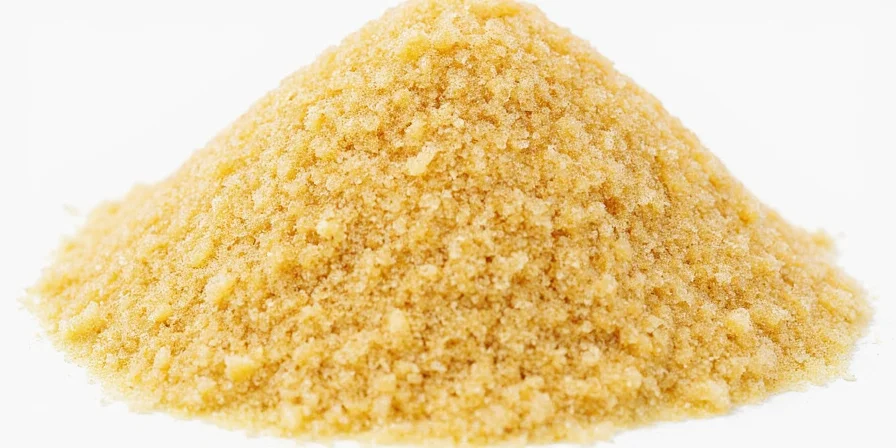









 浙公网安备
33010002000092号
浙公网安备
33010002000092号 浙B2-20120091-4
浙B2-20120091-4